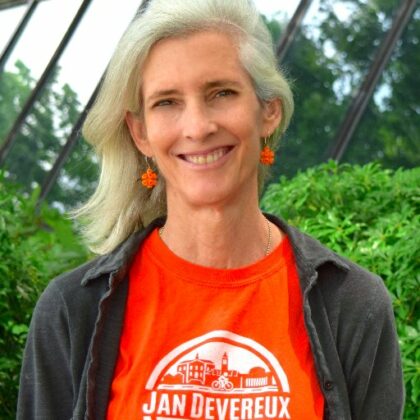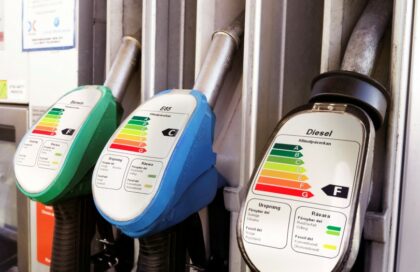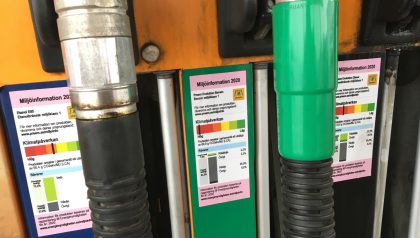As Vice Mayor in Cambridge, Massachusetts, Jan Deverux introduced the bill that requires warning labels on all fuel pumps in the city. These labels will alert motorists of the climate and health risks associated with burning fossil fuels.

On January 27th 2020, the City Council in Cambridge, MA, decided to put climate and health warning labels on all fuel pumps in the city, resembling the warning labels found on cigarette packages. Cambridge will be the first place in the world with such warning labels.
The Swedish Green Motorists celebrate this decision, and asked Jan a few questions about the inititative.
How did you get the idea to promote warning labels on gas pumps in Cambridge?
I learned of the idea through the advocacy of James Brooks.
What is the main significance of the decision to implement them?
The labels make the connection between burning fossil fuels and climate change harder to ignore. Transportation accounts for a significant portion of carbon footprint.
What are the prospects that more US cities adopt similar legislation?
It’s too soon to tell whether other cities in Massachusetts or elsewhere will follow Cambridge’s lead. We have not yet implemented the labels, so public awareness is low. Once the labels are posted people who do not live in Cambridge will stop at gas stations in the city and see them, so awareness will spread but it may not translate into other cities deciding to require labels, too.
What are the prospects that similar legislation is adopted at the state or federal level?
Legislation like this needs persistent advocacy and a sponsoring coalition of lawmakers who are committed to getting the bill passed. In the Mass legislature It’s more likely it would gain traction in the Senate, which is more aggressive on climate change and renewable energy measures and where the influence of lawmakers representing rural districts in Western Mass is less of a factor than in the House. I can’t speak to its federal prospects but the current administration appears captive to the auto and fossil fuel industries, so I would not hold out a lot of hope in the short term.
Interview by Per Östborn

